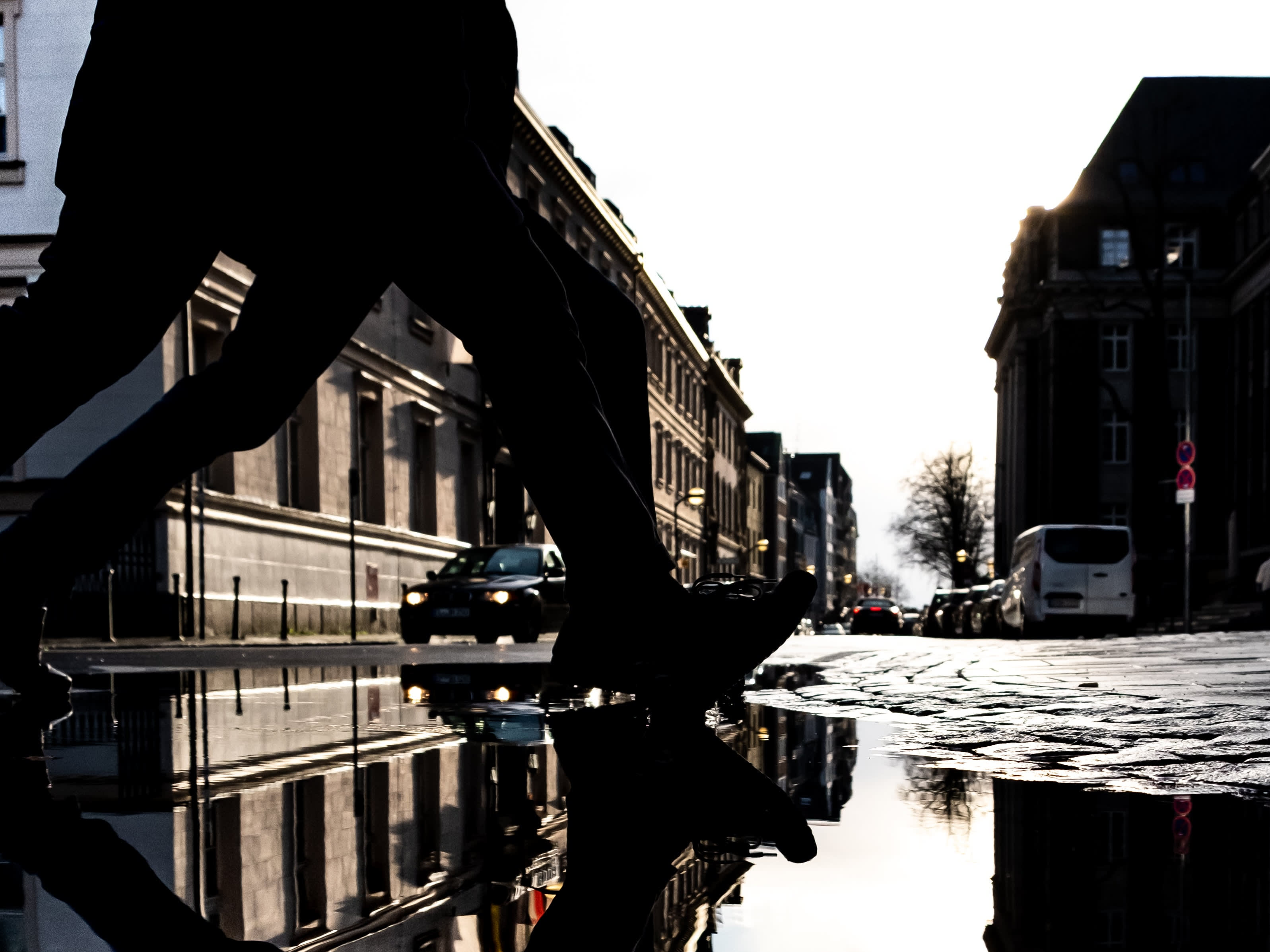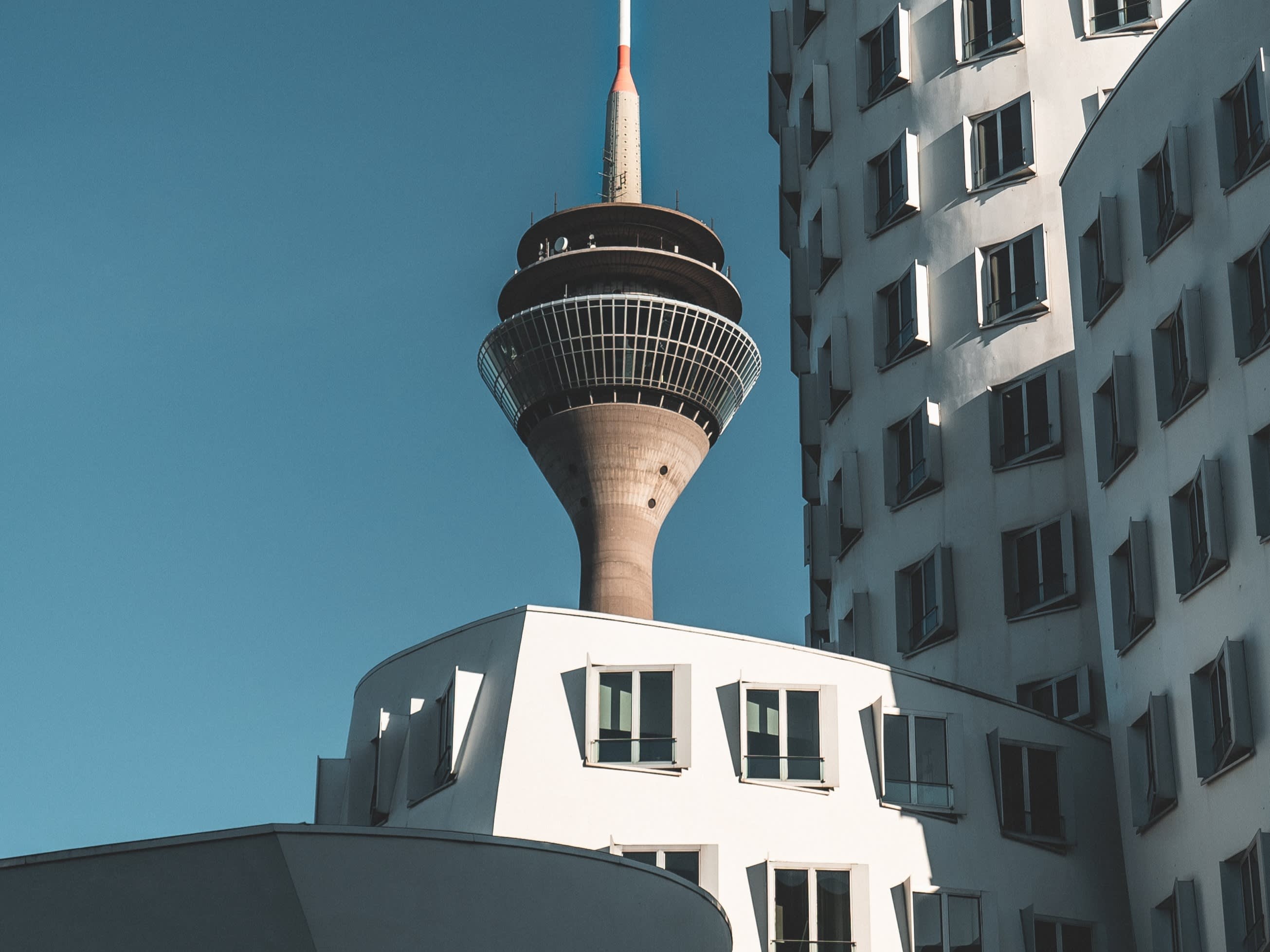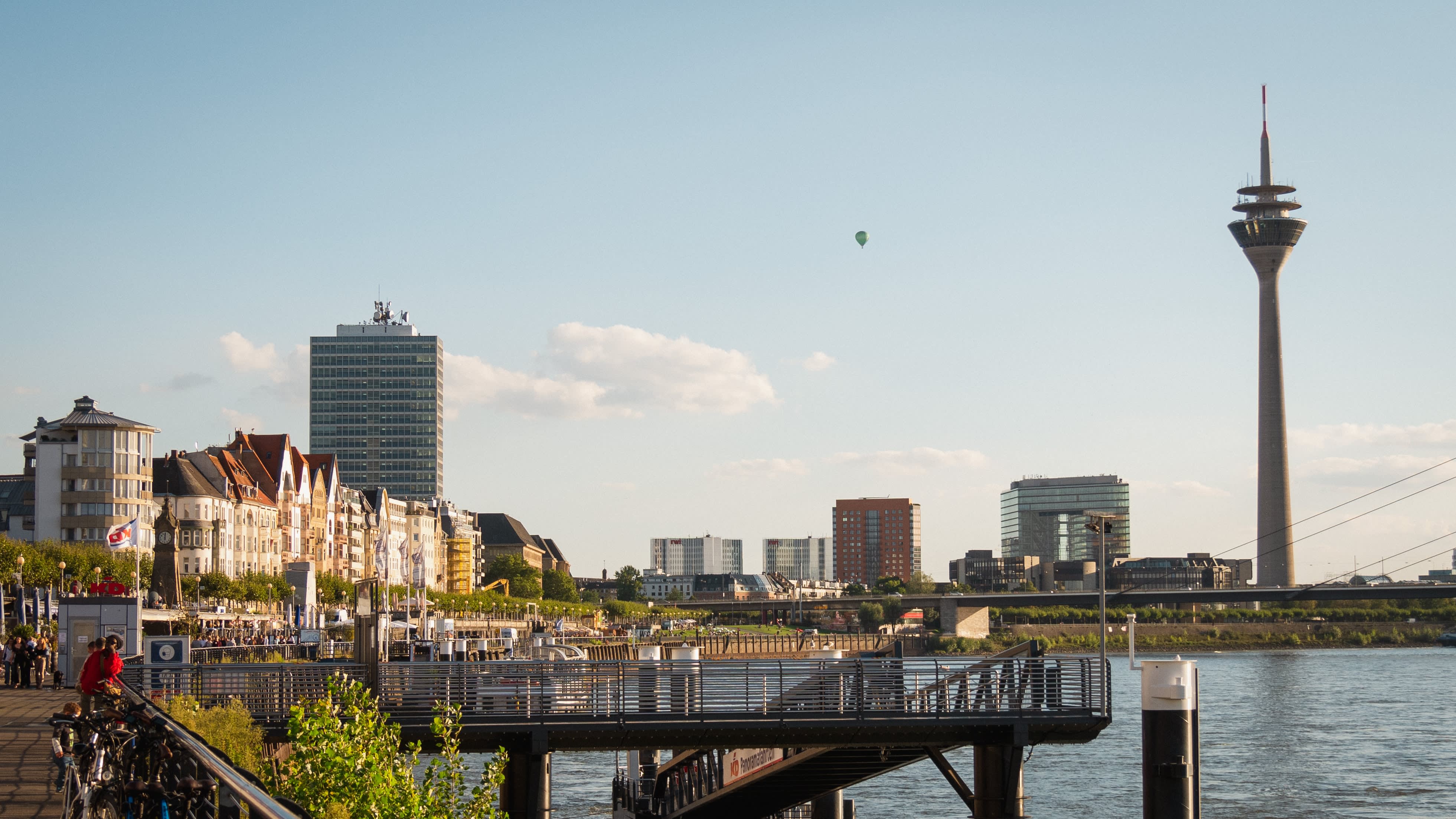
When you explore rental homes in Dusseldorf, one of the first things you’ll have to get a hang of is how to get from A to B. Luckily, the German public transport network is very efficient and easy to navigate. So once you know what Stadtbahn is and where to buy your tram tickets, getting around in Dusseldorf will be a piece of cake!
Public transport in Dusseldorf
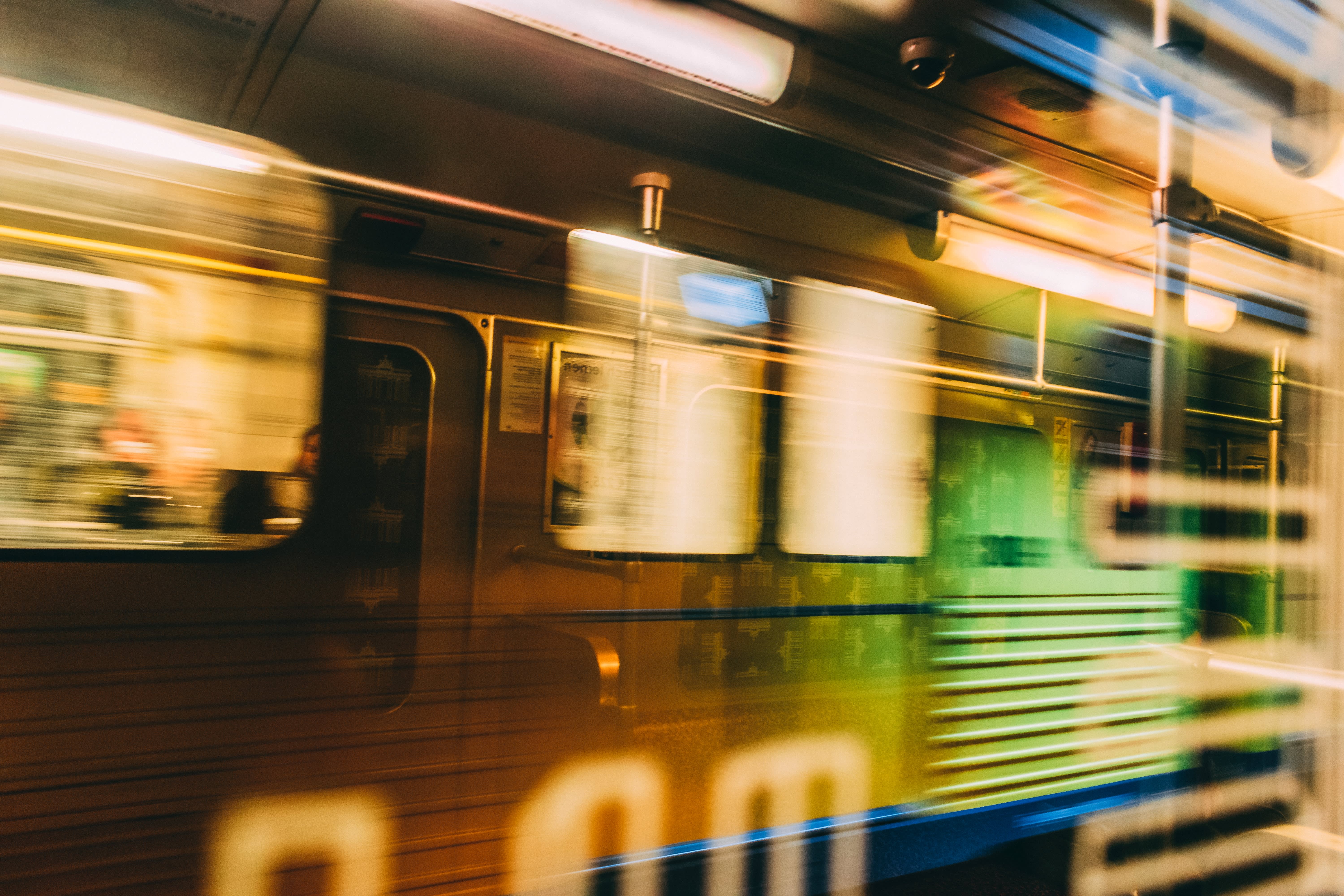
All the public transport in Dusseldorf is run by Rheinbahn, making it easy to switch between the city railway (U-Bahn), suburban trains (S-Bahn), trams and buses with the same ticket.
“Get familiar with the public transportation network in Dusseldorf with this interactive map.
”
In general, the working hours of public transport in Dusseldorf are between 9 a.m. and midnight. But that differs per line and the type of transport, so it’s best to check your connection in real-time on www.vrr.de or moovitapp.
Stadtbahn/ U-Bahn
Stadtbahn (city railway) is the fastest way to travel through Dusseldorf as it allows you to escape traffic jams altogether. It’s something in-between a tram and a metro, but only in the centre do the lines go underground.
You can recognise Stadtbahn stations by a large sign with a white U on a blue background and each of the 11 lines is identified by a number (U70 – U79, U83).
When travelling within the centre, you normally won’t wait for your train for longer than a few minutes. But as you go further towards the suburbs, the waiting time in the evenings or on weekends can increase up to 20 to 30 minutes between trains.
Note that not all lines operate daily and on schedule. U70 is restricted to rush hours only, while U77 doesn’t operate on Sundays and holidays and U83 remains closed on weekends.
Tram
Trams (Straßenbahn or streetcars) will become your reliable companion in the centre of Dusseldorf. Each of the 7 lines is identified by numbers 701 and 704 through 709. They stop frequently throughout the route, making them perfect for short travel.
While not all the tram stops are easy to spot, you can often recognise them by the yellow sign with a green ‘H’ for Haltestelle. The tram stops are usually combined with the bus stops.
Bus
Buses are helpful when transferring between tram and U-Bahn lines or travelling to suburbs. The bus network in Dusseldorf is rather extensive but less so in the city centre, where it gives way to tram lines.
The frequency of buses is also much lower than trams, trains, or metro. It might take from 30 minutes to an hour between each bus. Buses are also less reliable when in a hurry as they’re sensitive to traffic and their service can be sporadic on weekends.
Night travel: NachtExpress
When most public transport comes to a halt, the night bus service NachtExpress can come to your rescue. Most of the NE lines operate only on Tuesday, Saturday and Sunday nights between 1 a.m. and 4 a.m or only perform a single route on the rest of the days. But night owls and partygoers can rely on NE3 that goes between Düsseldorf Hbf and D-Oberrath daily from 1:06 a.m to 3:36 a.m.
S-Bahn
S-Bahn is a so-called suburban train, travelling at faster speeds and with fewer stops compared to U-Bahn. It’s usually less convenient for very short travels within the city limits but can prove handy if you need a quicker way to travel between Düsseldorf’s neighbouhoods that are far from each other.
And if you need to travel to other cities in the Ruhr area and along the Rhine, S-Bahn is your best bet. You can easily reach Dortmund by S1 and Cologne by S11 without spending extra money on the high-speed ICE train.
Regional trains (RE, RB)
You can also travel to the nearby suburbs and cities like Cologne, Neuss or Essen by Regional Express (RE) and Regionalbahn (RB) trains. Operated by the national railway service Deutsche Bahn, these fast trains require different tickets than local transport. Make sure to buy those in advance as they don’t sell tickets onboard.
Long-distance travel by ICE
Would you like to explore the rest of Germany? That’s easy and fast with the high-speed intercity trains (ICE). They take you to any part of the country or abroad in a blink of an eye. Travelling at the speed of 300 km/h, you’ll be in Berlin in 4.5 hours!
Just as with the regional trains, you’ve to buy a DB ticket in advance to travel with ICE trains.
Buying public transport tickets in Düsseldorf
Since Rheinbahn operates all public transport in Dusseldorf, you can buy bus, tram, metro or train tickets at any station via the vending machine. Or, when in a bus, directly from the driver.
While vending machines usually have an English language option, you might run into a language barrier when communicating with the driver.
“We recommend that you save yourself the hassle and purchase tickets online via VRR app.
”
If you have a printed ticket, don’t forget to validate it in a yellow or red validator machine (entwerter) on the platform before boarding. Digital tickets can be activated in-app. For long-distance journeys in ICE, your tickets don’t need to be validated.
Rheinbahn price levels
In Dusseldorf, public transport tickets are priced based on the zone of travel. So, for example, when buying a ticket to travel within the city limits of Dusseldorf, you’ve to select the price level A3.
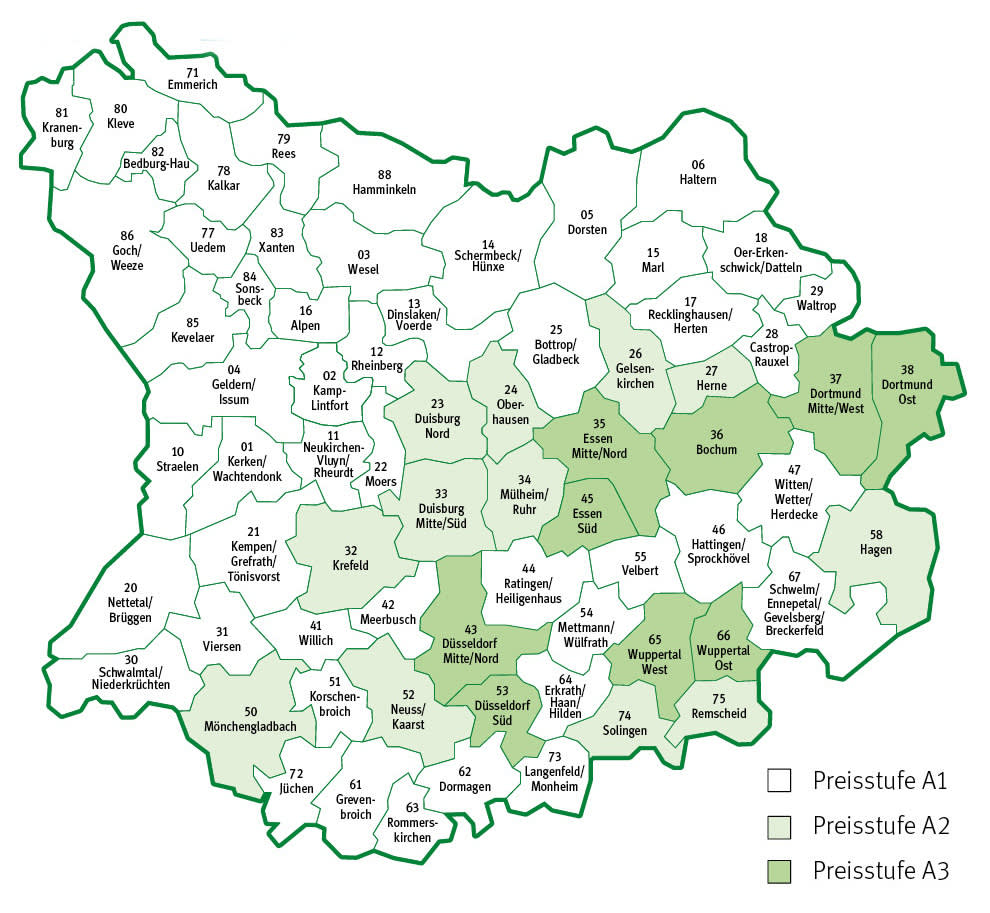
Rheinbahn offers various types of tickets. Let's look into some of them:
- Short distance tickets (Kurzstrecke) are valid for maximum 3 rides within 20 minutes.
- Single tickets (EinzelTicket) valid for 2 hours of travel in the same direction. So you can't use it for a return trip.
- Happy hour ticket allows you travelling in the whole zone A freely between 6 p.m. to 6 a.m. of the following morning.
- 24-hour ticket is valid from the moment you purchase it until the local public transportation shuts down.
- 30-day pass Ticket1000 can be used an unlimited number of times throughout a month.
- 30-day pass Ticket1000 after 09:00 a.m. is the same as Ticket1000 but you can use it only after 9 a.m.
- 30-day pass Ticket2000 same as the Ticket1000, but it allows you to take your bike onboard and you'd be able to lend it to other people. You can also take 1 passenger with you for free.
Rheinbahn price levels per ticket type:
| Type | Average cost |
|---|---|
| Short distance (Kurzstrecke) | €1.70 |
| Single tickets (EinzelTicket) | €3 |
| Happy hour ticket | €3.30 |
| 4erTicket for 4 journeys | €11 |
| 10erTicket for 10 journeys | €23.40 |
| 30-day pass Ticket1000 | €80.50 |
| 30-day pass Ticket1000 after 09:00 a.m. | €59.70 |
“”
Travel cards for students
Are you going to study in Germany? Here’s some great news; you might be entitled to a so-called semester ticket. This ticket grants you free unlimited travel on all the local public transport. Most German universities provide semester tickets as part of paying a contribution fee to study at the university.
If your university in Düsseldorf doesn’t provide a semester ticket or you intend to do an internship or traineeship in Germany, you can purchase the YoungTicketPLUS ticket instead. You just need to fill in the subscription application, get it stamped by your educational institution, and hand it over to Rheinbahn.
| Type | Average cost |
|---|---|
| YoungTicketPLUS monthly pass | €73.70 |
| YoungTicketPLUS for a year | €62.95 |
“”
Knowing your way around the city takes you a step closer to feeling like a local. Now that you know the ins and outs of public transportation in Düsseldorf, what will be your choice?
Please reach out to content@housinganyhwere.com if you have any suggestions or inquiries about the content on this page.
